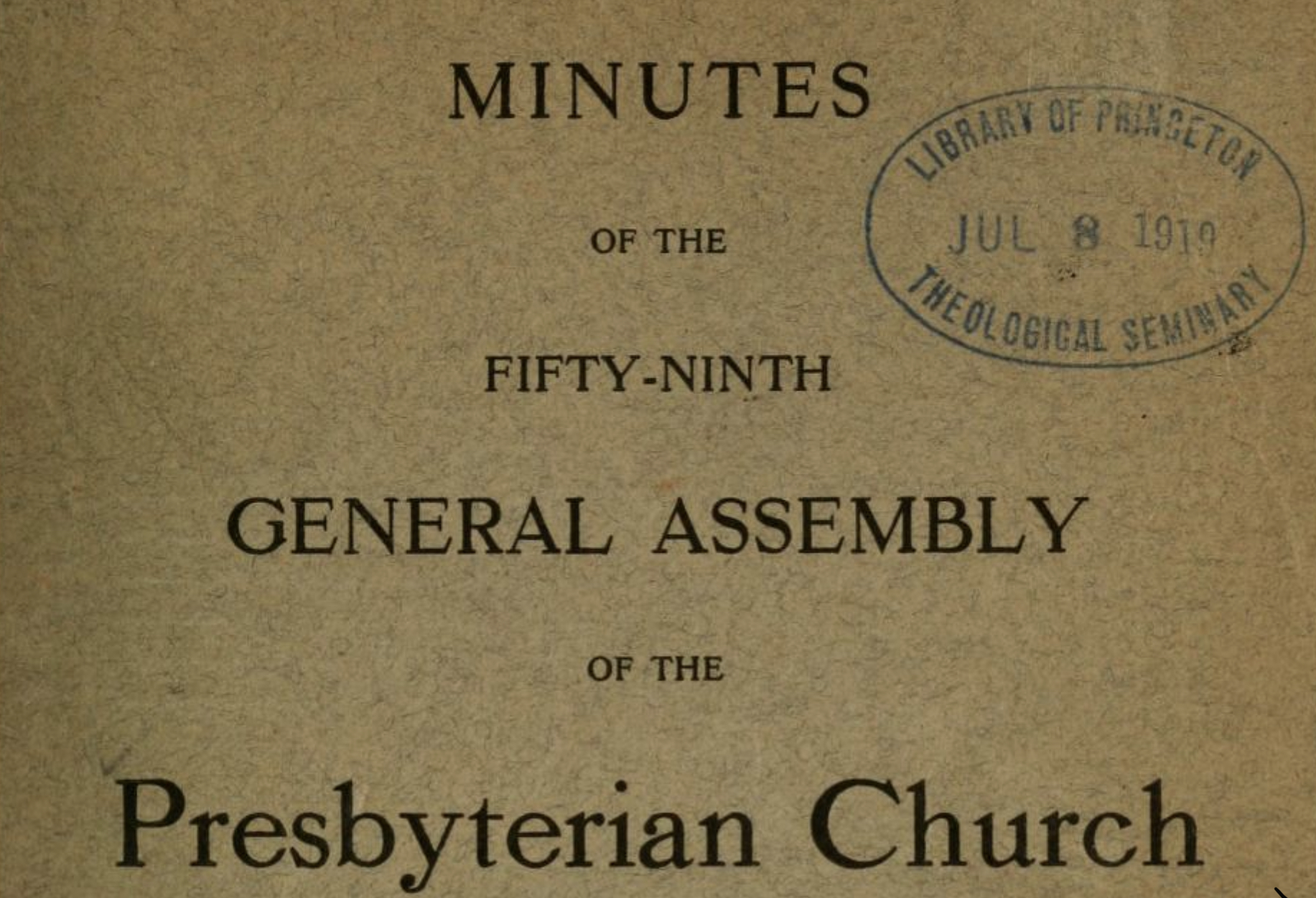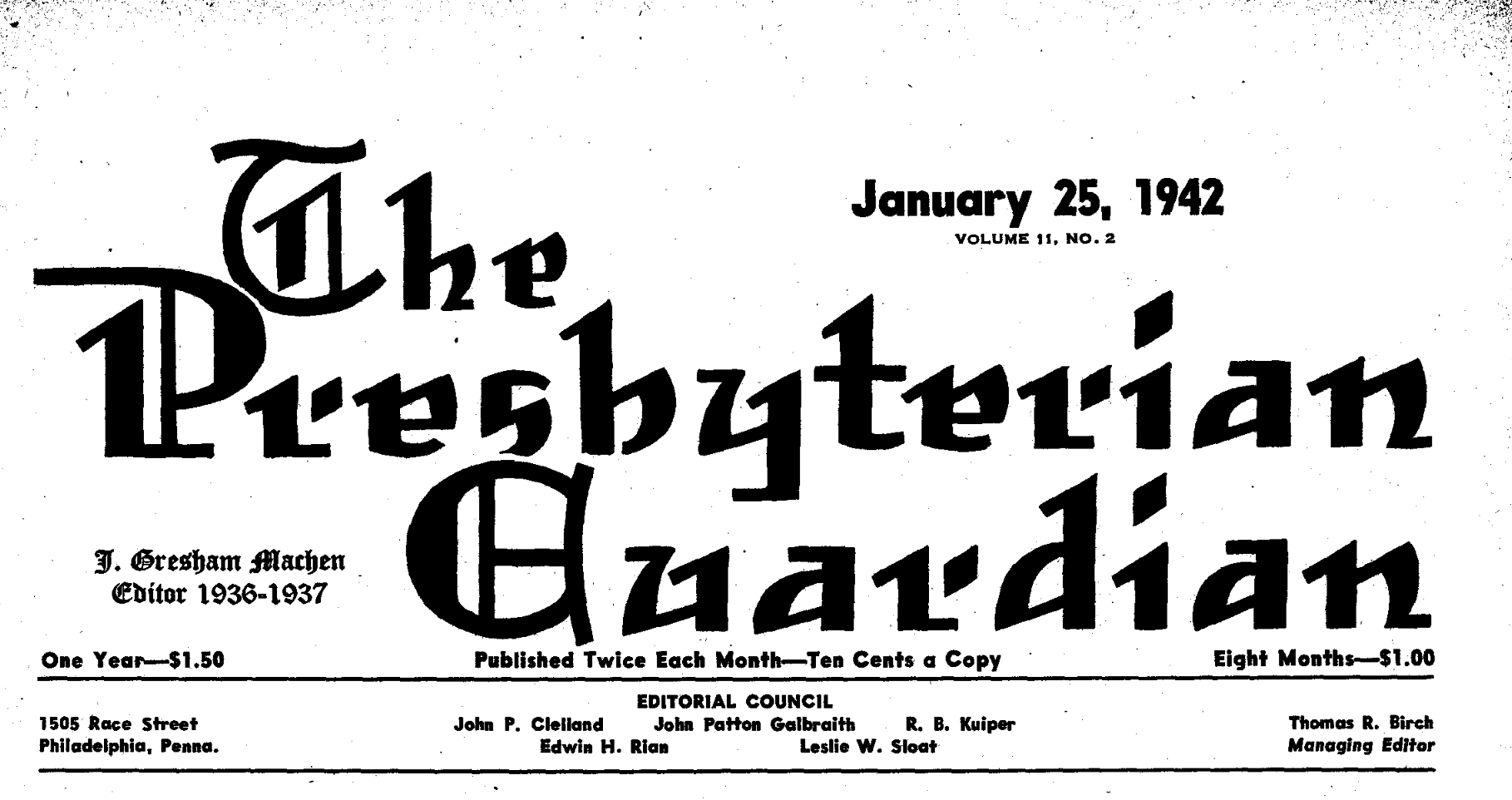Elizabeth Adamson

A godly wife is edified and comforted in her death by the ministry of John Knox. Read More
Welcome to Ulster Worldly, a blog about the history of Presbyterianism. Many of these stories come from my own family, many others come from my own denomination.
Tim Hopper
Raleigh, NC

A godly wife is edified and comforted in her death by the ministry of John Knox. Read More
My edited and newly typeset version of John G. Lorimer’s work The Deaconship is now available in paperback on Amazon. Lorimer was a Church of Scotland minister who joined the Free Church of Scotland when it formed in 1843.
The book includes a forward from Dr. C. Nick Willborn of Covenant PCA in Oak Ridge, TN:
This little book also sets forth practical good the office can accomplish when rightly distinguished from the office of elder and fully honored through the recognition of and ordination of biblically qualified men. In this area, his work is reminiscent of Samuel Miller’s work on the eldership, especially in his chapter on the distinction between elders and deacons. Although the historical contexts in which Miller and Lorimer wrote are somewhat different, the astute reader will soon realize the abiding benefit this little book can be for the church today due to its historical and biblical faithfulness. With all this in mind, it is a worthy study for students, elders and deacons who love the church as Christ’s beloved bride and wish to serve her faithfully.

The impact of the Spanish Flu on the Southern Presbyterian Church Read More
From Darryl Hart and John Muether’s 1997 article entitled “J. G. Machen and the Regulative Principle”:
Machen [in 1926] opposed Presbyterian support for Prohibition, however, not because he approved of drunkenness or preferred unpopularity. Rather he did so for important theological–even Reformed–reasons. In a statement defending his position (never published again because of the damage his friends believed it would have done) Machen argued that the church had no legitimate rationale for taking a side in this political question. Aside from the question of the relations between church and state, he believed that the church was bound by the Word of God and so all of its declarations and resolutions had to have clear Scriptural warrant. The Bible did not, however, provide support for Prohibition. It taught the idea of temperance, that is, moderate consumption of alcohol and the other good things of God’s creation. This meant that Scripture forbade inebriation. But even here the Bible did not give directions to government officials for abolishing drunkenness. Should this be a matter for the federal government to regulate or should states and local governments? Was legislation the best way to shape public sentiment or was an educational program more effective? Was regulation of private citizens’ behavior even a proper concern of the state? The Bible did not answer these and various other questions. So, Machen concluded, the church had no business meddling in the politics of Prohibition or any other matter where Scripture did not speak.
The most recent issue of the OPC magazine New Horizons features an article by historian and OPC ruling elder D.G. Hart entitled Machen’s Magazines.
Harts starts, “To claim that the Orthodox Presbyterian Church would not exist if not for a magazine is a bit of a stretch but has enough proximity to historical circumstances to be plausible.” He goes on to discuss The Presbyterian, Christianity Today, The Presbyterian, and New Horizons, each of which were used to inform “ordinary readers about the details and significance of the church struggle.”
In 2001, liberal Anglican theologian Norman Pittenger provided the Princeton Seminary Bulletin with some of his memories of his youth in Princeton, NJ where he was born in 1905. Nick Batzig noted Pittenger included his memories of J. Gresham Machen:
My increasing acquaintance with Seminary students, coupled with my newspaper connections, made it natural for me to take an interest in, and write news reports about, the controversy in Presbyterianism (especially at the Seminary) between a very conservative and a more or less “liberal” theology. (I thought it a very mild variety of liberalism.) And so I got to know Dr. Machen personally. He was kind to me, polite and cooperative. I thought him a charming, vigorous, traditional but kindly man. I can remember only one somewhat biting comment he made: the reason “liberal Protestants” were so much concerned with ethics—to the exclusion of a deep theological interest—was that they had nothing much else to believe in!
Immediately after this period I decided to go ahead with my plan to enter the Episcopal Church ministry, and I planned to go to General Seminary in New York. Just then I had a visit, at my parents’ home, from Dr. Machen. How he discovered that I had these plans I do not know, but I was deeply moved when he appeared, asked to see me, and then sat and talked with me for a few minutes on our veranda. I recall especially, and have always been grateful for, his closing remark as he said farewell: “My best wishes to you, my young friend—and may you prosper!” His thoughtfulness made me understand why so many students in the Seminary adored him. I think that one may say that of all the faculty there at that time, J. Gresham Machen was the most loved and most influential, both with those who followed his conservative line and with those who disagreed with his position but loved the man—his generosity of spirit to students, his ready hospitality to them in his rooms in Alexander Hall, and his genuine and deep piety.
This reminds me of Pearl Buck’s memories of Machen’s courtesy.
My great grandfather Hershey Longenecker and his wife Minnie served as Southern Presbyterian missionaries to the Belgian Congo from 1917 to 1951. In retirement, he wrote a memoir of his life and ministry entitled Memories of Congo. Some time ago, my dad’s cousin digitized the book, and he gave me permission to host it at congo.ulsterworldly.com.
Update (Feburary 21, 2024): Memories of Congo is now available as a Kindle ebook.
Beginning in 1707 and for virtually every year throughout the century, the minutes of the Presbyterian Church contain petitions from congregations and presbyteries pleading for ministers. At least every other year, the Synods of Philadelphia and New York wrote to presbyteries in Scotland or Ireland, begging for ministers to come to the New World. By 1740 there were 160 congregations; in 1761 the synod lamented: “The Church suffers greatly for want of a Opportunity to instruct Students in the Knowledge of Divinity.”
Between 1716 and 1766, some 200,000 Scotch-Irish immigrated, primarily from Ulster, with the majority settling in the Shenandoah Valley. The meeting of the first post-Revolutionary Presbyterian General Assembly, in 1789, counted 215 congregations with ministers and 204 without. Recognizing the shortage of ministers, the assembly called for each synod to recommend two members as missionaries to the frontier.
(From A Copious Fountain: A History of Union Presbyterian Seminary, 1812-2012 by William B. Sweetser Jr.)

John Murray writes of the calling of the Westminster Assembly by the Long Parliament in 1643 Read More
The Journey of Presbyterian Pioneers from Virginia to Kentucky. Read More